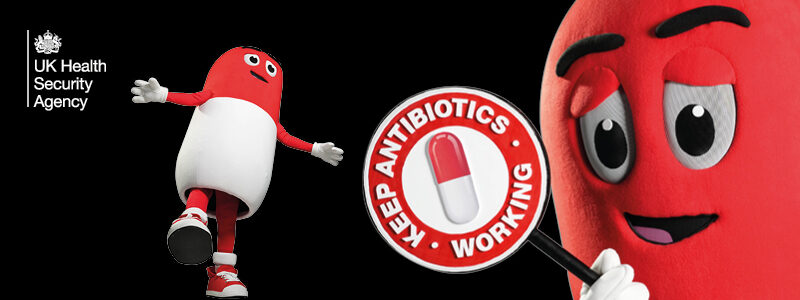
Antibiotics are life-saving medicines, but their power is under threat. Bacteria are becoming resistant to antibiotics at an alarming rate, turning once-treatable infections into potentially life-threatening conditions. This growing problem is called antimicrobial resistance (AMR).
Why does this matter?
AMR is not just a medical issue – it’s a social one. It deepens health inequalities and affects the most vulnerable in our communities:
- People in deprived areas face a 42% higher risk of developing antibiotic-resistant infections.
- While most antibiotic-resistant infections occur in white ethnic groups, Asian and Asian British communities experience the highest proportion (nearly 40% of infections).
- Our declining ability to treat and prevent infections is hitting hardest in communities already facing barriers to healthcare.
What’s causing this?
Bacteria naturally develop resistance over time, but misuse and overuse of antibiotics speeds up the process. Every unnecessary prescription increases the risk for everyone.
How you can help
Protect yourself, your family, and your community by using antibiotics responsibly:
- Antibiotics don’t work for colds or flu – your body can fight these infections on its own.
- Only take antibiotics when prescribed by a healthcare professional.
- Always complete the full course as directed.
- Never save antibiotics for later or share them with others.
Why it matters now
If we lose the effectiveness of antibiotics, routine infections and minor injuries could once again become life-threatening. Together, we can slow resistance and protect future generations.
Blog: Working together to tackle antibiotic resistance: why careful prescribing matters for children Blog: Tackling antibiotic resistance: why prevention and vaccination are essential Super Bodies